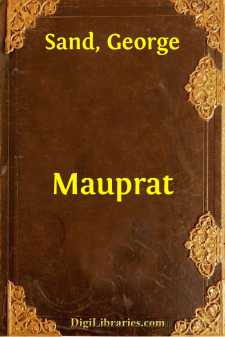Categories
- Antiques & Collectibles 13
- Architecture 36
- Art 48
- Bibles 22
- Biography & Autobiography 815
- Body, Mind & Spirit 144
- Business & Economics 28
- Children's Books 18
- Children's Fiction 14
- Computers 4
- Cooking 94
- Crafts & Hobbies 4
- Drama 346
- Education 58
- Family & Relationships 59
- Fiction 11829
- Games 19
- Gardening 17
- Health & Fitness 34
- History 1378
- House & Home 1
- Humor 147
- Juvenile Fiction 1873
- Juvenile Nonfiction 202
- Language Arts & Disciplines 89
- Law 16
- Literary Collections 686
- Literary Criticism 179
- Mathematics 13
- Medical 41
- Music 40
- Nature 179
- Non-Classifiable 1768
- Performing Arts 7
- Periodicals 1453
- Philosophy 65
- Photography 2
- Poetry 896
- Political Science 203
- Psychology 44
- Reference 154
- Religion 515
- Science 126
- Self-Help 85
- Social Science 82
- Sports & Recreation 34
- Study Aids 3
- Technology & Engineering 59
- Transportation 23
- Travel 463
- True Crime 29
Our website is made possible by displaying online advertisements to our visitors.
Please consider supporting us by disabling your ad blocker.
Mauprat
by: George Sand
Categories:
Description:
Excerpt
GEORGE SAND
Napoleon in exile declared that were he again on the throne he should make a point of spending two hours a day in conversation with women, from whom there was much to be learnt. He had, no doubt, several types of women in mind, but it is more than probable that the banishment of Madame de Stael rose before him as one of the mistakes in his career. It was not that he showed lack of judgment merely by the persecution of a rare talent, but by failing to see that the rare talent was pointing out truths very valuable to his own safety. This is what happened in France when George Sand—the greatest woman writer the world has known, or is ever likely to know—was attacked by the orthodox critics of her time. They feared her warnings; they detested her sincerity—a sincerity displayed as much in her life as in her works (the hypocrite's Paradise was precisely her idea of Hell); they resented bitterly an independence of spirit which in a man would have been in the highest degree distinguished, which remained, under every test, untamable. With a kind of bonhomie which one can only compare with Fielding's, with a passion as great as Montaigne's for acknowledging the truths of experience, with an absence of self-consciousness truly amazing in the artistic temperament of either sex, she wrote exactly as she thought, saw and felt. Humour was not her strong point. She had an exultant joy in living, but laughter, whether genial or sardonic, is not in her work. Irony she seldom, if ever, employed; satire she never attempted. It was on the maternal, the sympathetic side that her femininity, and therefore her creative genius, was most strongly developed. She was masculine only in the deliberate libertinism of certain episodes in her own life. This was a characteristic—one on no account to be overlooked or denied or disguised, but it was not her character. The character was womanly, tender, exquisitely patient and good-natured. She would take cross humanity in her arms, and carry it out into the sunshine of the fields; she would show it flowers and birds, sing songs to it, tell it stories, recall its original beauty. Even in her moods of depression and revolt, one recognises the fatigue of the strong. It is never for a moment the lassitude of the feeble, the weary spite of a sick and ill-used soul. As she was free from personal vanity, she was also free from hysteria. On marriage—the one subject which drove her to a certain though always disciplined violence—she clearly felt more for others than they felt for themselves; and in observing certain households and life partnerships, she may have been afflicted with a dismay which the unreflecting sufferers did not share. No writer who was carried away by egoistic anger or disappointment could have told these stories of unhappiness, infidelity, and luckless love with such dispassionate lucidity.
With the artist's dislike of all that is positive and arbitrary, she was, nevertheless, subject rather to her intellect than her emotions....


